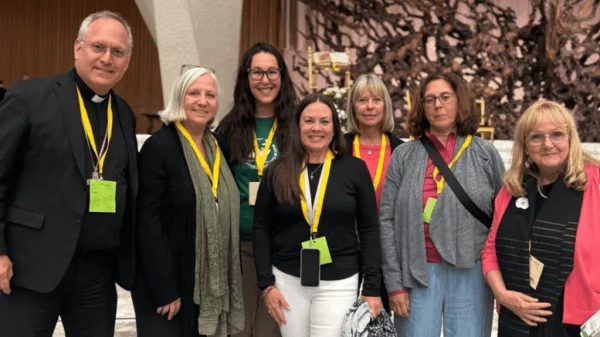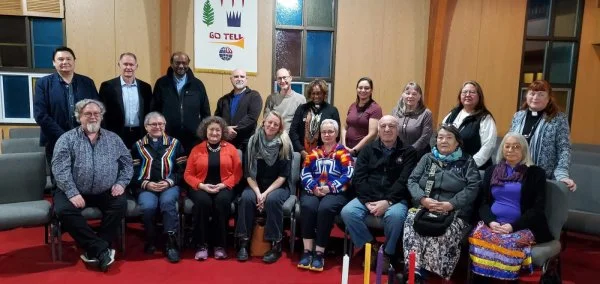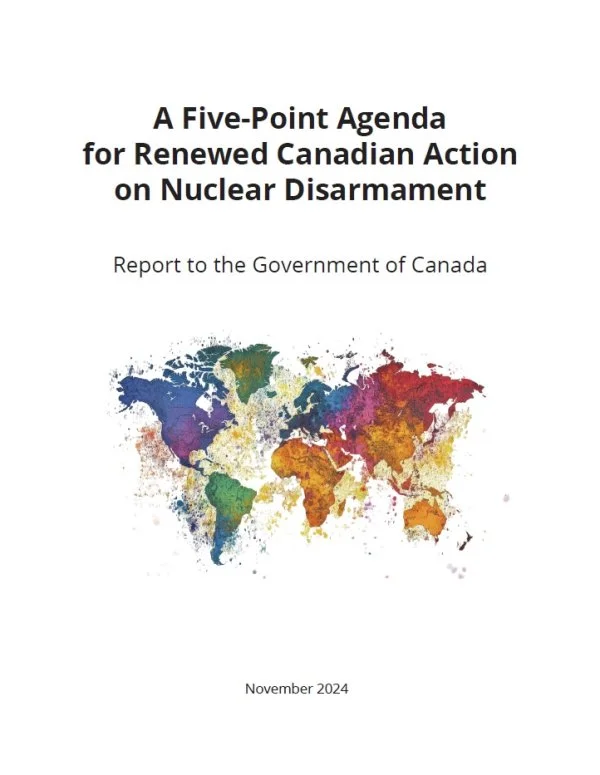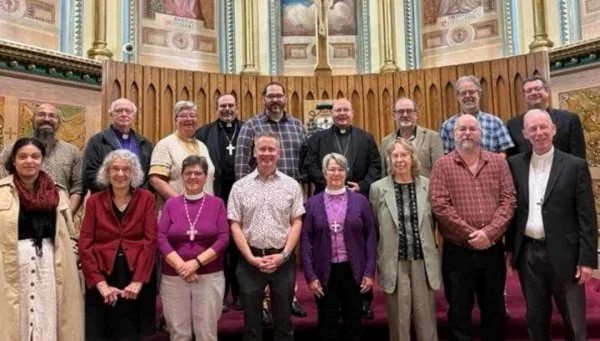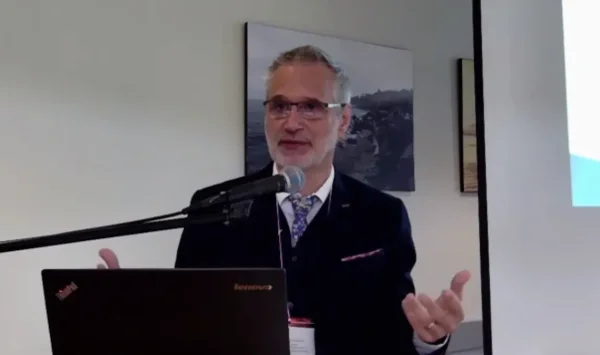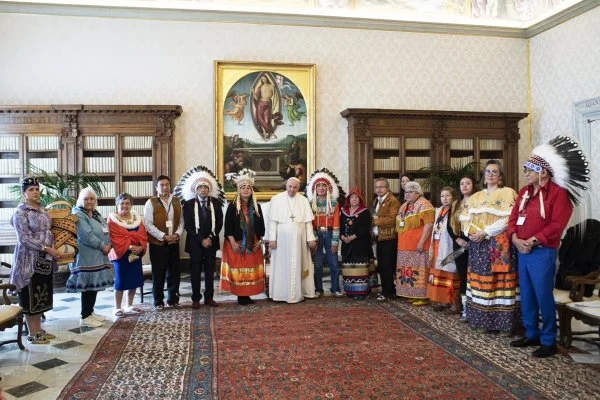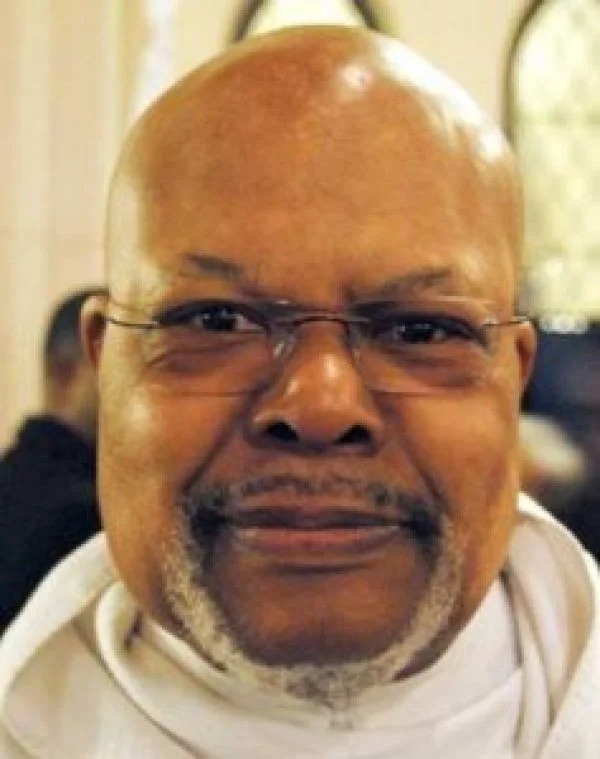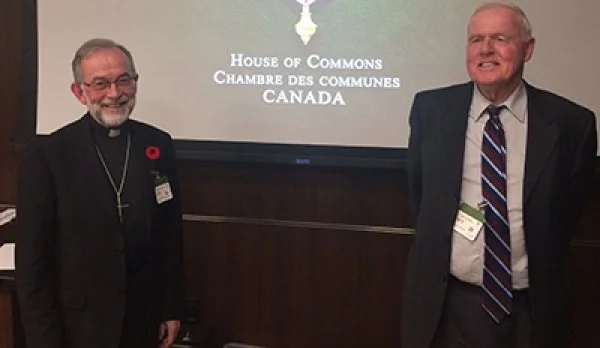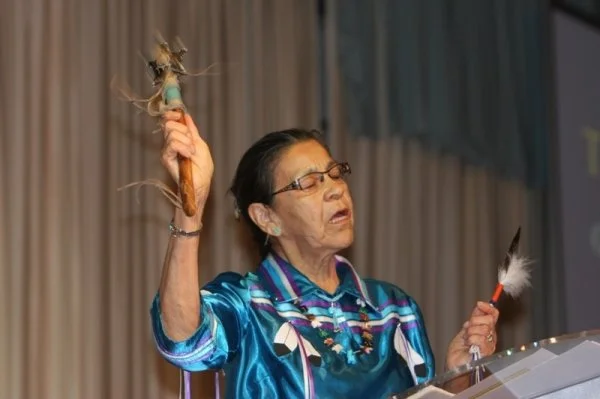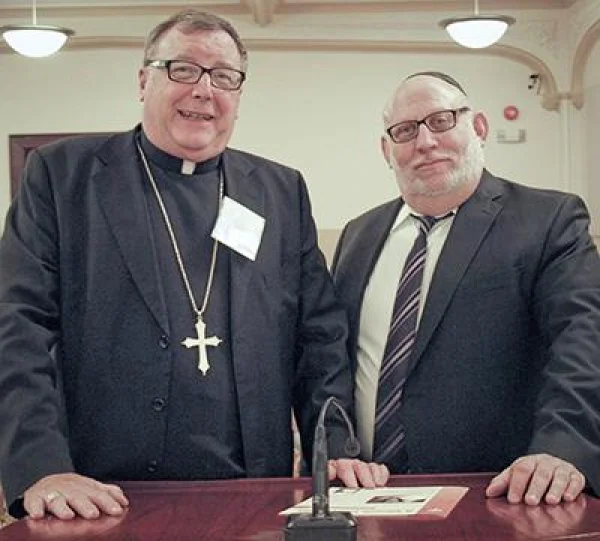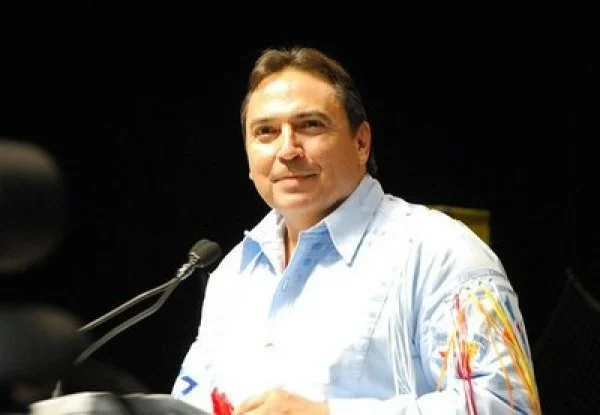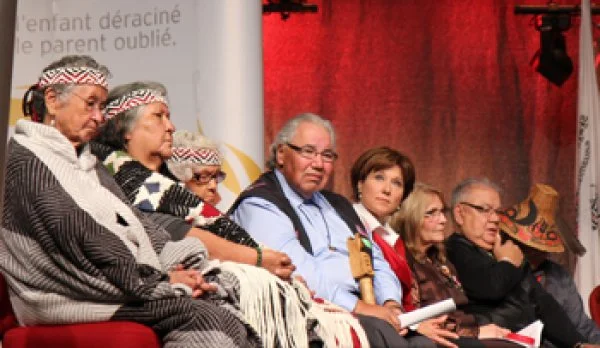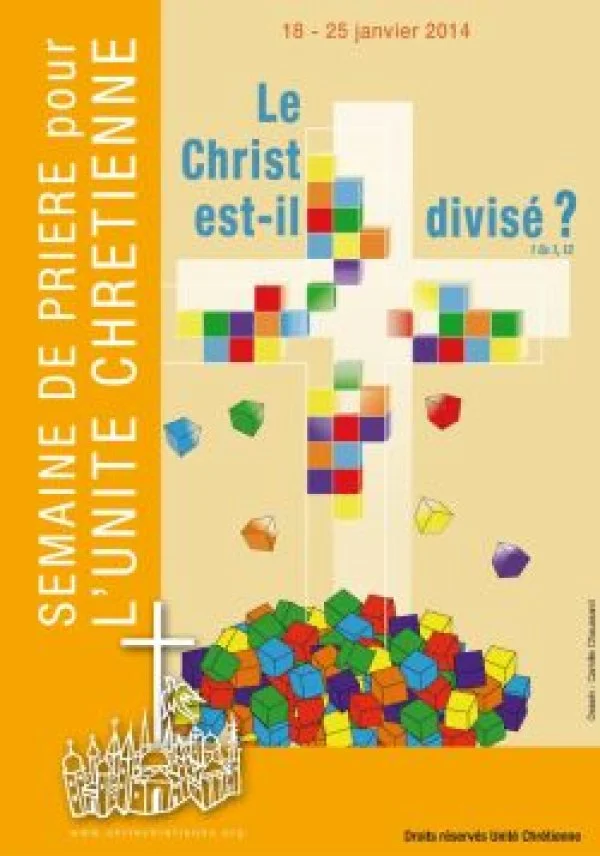- Français
- |
- Booklist
- |
- Week of Prayer
- |
- Links
- Areopagus - a forum for dialogue
- Academic journals
- Acronyms
- Bible tools
- Bibliographies
- Booksellers and publishers
- Churches
- Canadian church headquarters
- Directory of Saskatchewan churches
- Retreat centres
- Saskatchewan church and non-profit agencies
- Ecumenism.net Denominational links
- Anabaptist & Mennonite
- Anglican
- Baptist
- Evangelical
- Independent episcopal
- Lutheran
- Methodist, Wesleyan, and Holiness
- Miscellaneous
- Mormon
- Orthodox (Eastern & Oriental)
- Para-church ministries
- Pentecostal / charismatic
- Presbyterian & Reformed
- Quaker (Society of Friends)
- Roman & Eastern Catholic
- United and uniting
- Documents of Ecumenical Interest
- Ecumenical agencies
- Ecumenical Booklist
- Ecumenical Dialogues
- Glossary
- Human rights
- Inter-religious links
- Justice & peace
- Lectionaries
- Religious news services
- Resource pages
- Search Ecumenism.Net
- |
- Documents
- Ancient & Medieval texts
- Ecumenical Dialogues
- Interreligious
- Anabaptist & Mennonite
- Anglican
- Evangelical
- Lutheran
- Orthodox
- Reformed & Presbyterian
- Roman & Eastern Catholic
- United & Uniting
- Miscellaneous churches
- Canadian Council of Churches (CCC)
- Conference of European Churches (CEC)
- Interchurch Families International Network (IFIN)
- National Council of Churches in Australia (NCCA)
- Lausanne Committee for World Evangelism (LCWE)
- World Council of Churches (WCC)
- Other ecumenical documents
Church traditions
Documents from ecumenical agencies
- |
- Dialogues
- Adventist-Reformed
- African Instituted Churches-Reformed
- Anglican-Lutheran
- Anglican-Orthodox
- Anglican-Reformed
- Anglican-Roman Catholic
- Anglican-United/Uniting
- Baptist-Reformed
- Disciples of Christ-Reformed
- Disciples of Christ-Roman Catholic
- Evangelical-Roman Catholic
- Lutheran-Mennonite
- Lutheran-Mennonite-Roman Catholic
- Lutheran-Reformed
- Lutheran-Roman Catholic
- Mennonite-Reformed
- Mennonite-Roman Catholic
- Methodist-Reformed
- Methodist-Roman Catholic
- Oriental Orthodox-Reformed
- Orthodox-Reformed
- Orthodox-Roman Catholic
- Pentecostal-Reformed
- Prague Consultations
- REC-WARC Consultations
- Roman Catholic-Lutheran-Reformed
- Roman Catholic-Reformed
- Roman Catholic-United Church of Canada
- |
- Quick links
- Canadian Centre for Ecumenism
- Canadian Council of Churches
- Ecumenical Shared Ministries
- Ecumenism in Canada
- Interchurch Families International Network
- International Anglican-Roman Catholic Commission for Unity and Mission
- Kairos: Canadian Ecumenical Justice Initiatives
- North American Academy of Ecumenists
- Prairie Centre for Ecumenism
- Réseau œcuménique justice et paix
- Week of Prayer for Christian Unity
- Women's Interchurch Council of Canada
- World Council of Churches
- |
- Archives
- |
- About us
Archive for tag: Canada
Archive pour tag : Canada
A month after attending the Vatican’s Jubilee of Synodal Teams and Participatory Bodies (Oct. 24–26), Canadian lay leaders involved in the Church’s synodality movement hosted a webinar to reflect on the event and discuss next steps in the synodal journey.
The Nov. 25 virtual event, called “Pilgrims of Hope: From Waterloo to Rome” by Concerned Lay Catholics, highlighted that much of the Vatican summit’s discussions echoed those from the “Journey of Encounter: Pilgrims of Hope Embracing Synodality” event held in June at St. Jerome’s University in Waterloo, Ontario.
… Read more » … lire la suite »

 Permanent link: ecumenism.net/?p=14714
Permanent link: ecumenism.net/?p=14714
Categories: Catholic Register • In this article: Canada, Catholic, synodality

 Lien permanente : ecumenism.net/?p=14714
Lien permanente : ecumenism.net/?p=14714
Catégorie : Catholic Register • Dans cet article : Canada, Catholic, synodality
Pope Leo XIV fulfilled a promise made by the late Pope Francis to return to Canada’s Indigenous communities artifacts — including an Inuit kayak, masks, moccasins, and etchings — that have been held by the Vatican for more than 100 years.
The pope gave 62 artifacts to the leaders of the Canadian bishops’ conference Nov. 15, the Vatican and the bishops’ conference said in a joint statement.
The bishops “will proceed, as soon as possible, to transfer these artifacts to the National Indigenous Organizations,” which will ensure they are “reunited with their communities of origin,” said a separate statement from the Canadian Conference of Catholic Bishops.
… Read more » … lire la suite »

 Permanent link: ecumenism.net/?p=14686
Permanent link: ecumenism.net/?p=14686
Categories: CNS • In this article: Canada, Indigenous peoples, Pope Francis, Pope Leo XIV, Reconciliation

 Lien permanente : ecumenism.net/?p=14686
Lien permanente : ecumenism.net/?p=14686
Catégorie : CNS • Dans cet article : Canada, Indigenous peoples, Pope Francis, Pope Leo XIV, Reconciliation
“A permanent ceasefire would cease hostilities, release all remaining hostages, liberate thousands of Palestinian prisoners detained without cause or charge, ensure continuing and increasing humanitarian aid in all forms — medical, food and psychological — and result in the withdrawal of occupying forces,” write Anglican, Lutheran, Presbyterian and United Church leaders.
… Read more » … lire la suite »

 Permanent link: ecumenism.net/?p=14513
Permanent link: ecumenism.net/?p=14513
Categories: News, Opinion • In this article: Canada, church leaders, Gaza, Israel, Middle East, Palestine, peace

 Lien permanente : ecumenism.net/?p=14513
Lien permanente : ecumenism.net/?p=14513
Catégorie : News, Opinion • Dans cet article : Canada, church leaders, Gaza, Israel, Middle East, Palestine, peace
Travelling to Winnipeg following time in Toronto, Pillay participated in a tour of the National Centre for Truth and Reconciliation, met with Indigenous church leaders, had an ecumenical dinner with young adults, visited the Canadian Museum for Human Rights, spoke at a panel discussion co-hosted by the Manitoba Multifaith Council and shared a breakfast at the Evangelical Lutheran Church in Canada National Office with church leaders and representatives.
“It has been so great to be with you,” Pillay said. “We are pilgrims and continue to co-pilgrim together. If there is one message, one takeaway from the past few days, it is this: You are not alone; we are with you. Worldwide, globally, we stand together. Whatever you experience in this part of the world, we would love to journey with you and be as helpful as we can and seek your guidance as we speak into the situation from the outside.
… Read more » … lire la suite »

 Permanent link: ecumenism.net/?p=14449
Permanent link: ecumenism.net/?p=14449
Categories: WCC News • In this article: Canada, Jerry Pillay, WCC

 Lien permanente : ecumenism.net/?p=14449
Lien permanente : ecumenism.net/?p=14449
Catégorie : WCC News • Dans cet article : Canada, Jerry Pillay, WCC
On October 24, 2024, Canada’s four leading nuclear disarmament organizations—the Canadian Pugwash Group, the Canadian Network to Abolish Nuclear Weapons, Canadians for a Nuclear Weapons Convention, and Project Ploughshares—convened an expert Roundtable on “Nuclear Disarmament in Times of Unprecedented Risk.” This was the second extraordinary roundtable held in response to rapidly escalating nuclear threats. The convening organizations share the profound conviction that Canada must urgently reassert its voice and leadership in the global disarmament arena.
The world now stands on the razor’s edge of the most severe nuclear weapons threat since the Cold War. Recent years have seen a deep erosion of the global nuclear arms control and disarmament framework, marked by the collapse of critical treaties, advances in destabilizing weapons technologies, record-breaking expenditures in conventional arms, and an alarming resurgence of great-power competition.
… Read more » … lire la suite »

 Permanent link: ecumenism.net/?p=14388
Permanent link: ecumenism.net/?p=14388
Categories: Documents, News • In this article: Canada, nuclear disarmament, peace, Project Ploughshares

 Lien permanente : ecumenism.net/?p=14388
Lien permanente : ecumenism.net/?p=14388
Catégorie : Documents, News • Dans cet article : Canada, nuclear disarmament, peace, Project Ploughshares
Unleashing congregants’ talents and leadership abilities, embracing open-minded listening and fostering synodality at the parish and diocesan levels were prominent topics of conversation during the Canadian National Online Gathering for Priests video conference Aug. 14.
Approximately “80 to 90 per cent” of the 100 priests invited tuned in for presentations from Frs. Fabio de Souza of Calgary, Pierre Ducharme, OFM., from Richmond, B.C and Quebec’s Daniel Ouellet, all of whom participated in the Vatican’s Parish Priests for the Synod spring meeting.
Attendees were then divided into 21 small groups for discussion. Each grouping featured four priests and one facilitator. All but four of the moderators — two priests and two religious sisters — were lay Catholics.
… Read more » … lire la suite »

 Permanent link: ecumenism.net/?p=14361
Permanent link: ecumenism.net/?p=14361
Categories: Catholic Register • In this article: Canada, Catholic, priests, synodality

 Lien permanente : ecumenism.net/?p=14361
Lien permanente : ecumenism.net/?p=14361
Catégorie : Catholic Register • Dans cet article : Canada, Catholic, priests, synodality
As the second anniversary of Russia’s full-scale invasion of Ukraine approaches on February 24, Christian leaders of Orthodox, Catholic, Evangelical, and other faith traditions in Canada, together with the World Evangelical Alliance’s Peace & Reconciliation Network, the Evangelical Fellowship of Canada, and the Canadian Council of Churches invite all Christians and people of goodwill to join in united prayer and action for peace.
This call to prayer and action—signed by 45 Canadian Church leaders—also acknowledges ongoing conflict elsewhere in the world:
“Without in any way minimizing or ignoring the suffering and sorrow caused by war and violence in other areas of the world, we stand together in inviting Christians and all people of goodwill to prayerfully consider how we are all called, and might contribute to, the achievement of peace in and for Ukraine.”
… Read more » … lire la suite »

 Permanent link: ecumenism.net/?p=14069
Permanent link: ecumenism.net/?p=14069
Categories: News, Pastoral letter, Resources • In this article: Canada, Canadian Council of Churches, Evangelical Fellowship of Canada, pastoral letters, peace, Ukraine

 Lien permanente : ecumenism.net/?p=14069
Lien permanente : ecumenism.net/?p=14069
Catégorie : News, Pastoral letter, Resources • Dans cet article : Canada, Canadian Council of Churches, Evangelical Fellowship of Canada, pastoral letters, peace, Ukraine
À l’approche du deuxième anniversaire de l’invasion à grande échelle de la Russie en Ukraine le 24 février, les chefs chrétiens des traditions orthodoxe, catholique, évangélique et d’autres confessions au Canada, en collaboration avec le Réseau de paix et de réconciliation de l’Alliance évangélique mondiale, l’Alliance évangélique du Canada et le Conseil canadien des Églises invitent toutes les chrétiens et les personnes de bonne volonté à se joindre à une prière et à une action unies pour la paix
Cet appel à la prière et à l’action—signé par 45 chefs d’églises canadiens—reconnaît également les conflits en cours ailleurs dans le monde :
« Sans minimiser ou ignorer de quelque manière que ce soit la souffrance et le chagrin causés par la guerre et la violence dans d’autres régions du monde, nous nous tenons ensemble pour inviter les chrétiens et toutes les personnes de bonne volonté à réfléchir avec prière à la manière dont nous sommes tous appelés, et pourraient contribuer à la réalisation de la paix en et pour l’Ukraine. »
… Read more » … lire la suite »

 Permanent link: ecumenism.net/?p=14071
Permanent link: ecumenism.net/?p=14071
Categories: News, Pastoral letter, Resources • In this article: Canada, Canadian Council of Churches, Evangelical Fellowship of Canada, pastoral letters, peace, Ukraine

 Lien permanente : ecumenism.net/?p=14071
Lien permanente : ecumenism.net/?p=14071
Catégorie : News, Pastoral letter, Resources • Dans cet article : Canada, Canadian Council of Churches, Evangelical Fellowship of Canada, pastoral letters, peace, Ukraine
The Anglican-Roman Catholic Dialogue in Canada (ARC) has met regularly since 1971. It works closely with the Anglican-Roman Catholic Bishops’ Dialogue (ARC-B), which was established in 1975. Supported by the Anglican Church of Canada (ACC) and the Canadian Conference of Catholic Bishops, the mandate of both Dialogues is to advance ecumenical understanding and cooperation between the churches in our country. In recent years, the Anglican contingent on ARC has also added members of the Evangelical Lutheran Church in Canada (ELCIC) as an expression of the deepening full communion relationship between the ACC and ELCIC.
… Read more » … lire la suite »

 Permanent link: ecumenism.net/?p=13985
Permanent link: ecumenism.net/?p=13985
Categories: Communiqué, Dialogue • In this article: Anglican Church of Canada, Canada, Catholic, CCCB, dialogue, Evangelical Lutheran Church in Canada

 Lien permanente : ecumenism.net/?p=13985
Lien permanente : ecumenism.net/?p=13985
Catégorie : Communiqué, Dialogue • Dans cet article : Anglican Church of Canada, Canada, Catholic, CCCB, dialogue, Evangelical Lutheran Church in Canada
New forms of spirituality, revival of traditional Indigenous beliefs, rising immigration, and debates on secularism are blurring the line between religion and non-religion in Canada, scholar David Seljak says — part of what he calls a “permanent revolution” and the latest development in how religion has shaped the country’s social order.
Seljak, a professor of religious studies at St. Jerome’s University in the University of Waterloo, shared his views as the opening speaker at “Land, Law, Religion and Reconciliation,” a colloquium hosted by the University of Victoria’s Centre for Studies in Religion and Society (CSRS) May 4-6. His livestreamed presentation was the latest of the John Albert Hall Lectures, a series hosted by the university in which notable speakers discuss the changing role of religion in modern society.
… Read more » … lire la suite »

 Permanent link: ecumenism.net/?p=13907
Permanent link: ecumenism.net/?p=13907
Categories: Anglican Journal • In this article: Canada, secularism

 Lien permanente : ecumenism.net/?p=13907
Lien permanente : ecumenism.net/?p=13907
Catégorie : Anglican Journal • Dans cet article : Canada, secularism
I was recently asked how we know if a dialogue is successful. Even in the church, there is a temptation to assess projects and ministries by worldly standards. How much did it cost? How many people attended? How many people watched the video? These practical concerns should be considered, but other questions might be more critical. Did the experience transform people? Did this deepen or strengthen relationships between people or between the churches? What were the fruits of this project? What is the Spirit saying to the churches?
… Read more » … lire la suite »

 Permanent link: ecumenism.net/?p=13641
Permanent link: ecumenism.net/?p=13641
Categories: One Body, Opinion • In this article: Canada, CCCB, dialogue

 Lien permanente : ecumenism.net/?p=13641
Lien permanente : ecumenism.net/?p=13641
Catégorie : One Body, Opinion • Dans cet article : Canada, CCCB, dialogue
Four letters and 26 promises from Canada’s bishops to Indigenous Canadians set an agenda for reconciliation that bishops like Calgary’s Bishop Bill McGrattan intend to act on before February turns into March.
McGrattan has scheduled meetings with members of the Indigenous Reconciliation Fund committee in his diocese. The committee — there are similar committees in dioceses across Canada — makes recommendations for local Calgary projects that could be funded by the national $30 million reconciliation fund Canada’s bishops have set up. McGrattan has forwarded the letters to Inuit, First Nations and Metis committee members and hopes for their feedback.
… Read more » … lire la suite »

 Permanent link: ecumenism.net/?p=13332
Permanent link: ecumenism.net/?p=13332
Categories: Catholic Register • In this article: bishops, Canada, Catholic, CCCB, Indigenous peoples, Reconciliation

 Lien permanente : ecumenism.net/?p=13332
Lien permanente : ecumenism.net/?p=13332
Catégorie : Catholic Register • Dans cet article : bishops, Canada, Catholic, CCCB, Indigenous peoples, Reconciliation
It will likely be months before refugee advocates, including the Canadian Council of Churches, know whether they have prevailed at the Supreme Court. But for now, council general secretary Rev. Peter Noteboom is satisfied that the argument to strike down the Safe Third Country Agreement between the United States and Canada has been heard.
… Read more » … lire la suite »

 Permanent link: ecumenism.net/?p=12597
Permanent link: ecumenism.net/?p=12597
Categories: Catholic Register • In this article: Amnesty International, Canada, Canadian Council for Refugees, Canadian Council of Churches, migration, refugees, Supreme Court

 Lien permanente : ecumenism.net/?p=12597
Lien permanente : ecumenism.net/?p=12597
Catégorie : Catholic Register • Dans cet article : Amnesty International, Canada, Canadian Council for Refugees, Canadian Council of Churches, migration, refugees, Supreme Court
As Canada’s Safe Third Country Agreement with the United States goes back before the Supreme Court of Canada Oct. 6, Ottawa has revealed a surge of 23,358 asylum seekers at irregular border crossings in the first eight months of 2022.
That’s 13-per-cent more than all of 2017, when the flood of refugees at Quebec’s Roxham Road crossing from New York captured headlines.
… Read more » … lire la suite »

 Permanent link: ecumenism.net/?p=12622
Permanent link: ecumenism.net/?p=12622
Categories: Catholic Register • In this article: Amnesty International, Canada, Canadian Council for Refugees, Canadian Council of Churches, migration, refugees, safe third-country agreement, Supreme Court

 Lien permanente : ecumenism.net/?p=12622
Lien permanente : ecumenism.net/?p=12622
Catégorie : Catholic Register • Dans cet article : Amnesty International, Canada, Canadian Council for Refugees, Canadian Council of Churches, migration, refugees, safe third-country agreement, Supreme Court
La crise climatique et la dégradation environnementale affectent des communautés partout sur la planète, mais certaines communautés le sont plus que d’autres.
Depuis des décennies, les industries polluantes et les sites d’enfouissement se sont retrouvés dans des communautés autochtones, noires, et autres communautés racisées au Canada, les laissant aux prises avec des taux anormalement élevés de cancers, de maladies respiratoires et d’autres problèmes de santé chroniques.
… Read more » … lire la suite »

 Permanent link: ecumenism.net/?p=12644
Permanent link: ecumenism.net/?p=12644
Categories: Resources • In this article: Canada, Canadian mining, corporate accountability, environmental racism, KAIROS Canada

 Lien permanente : ecumenism.net/?p=12644
Lien permanente : ecumenism.net/?p=12644
Catégorie : Resources • Dans cet article : Canada, Canadian mining, corporate accountability, environmental racism, KAIROS Canada
The climate crisis and environmental degradation are taking their toll on communities worldwide. But some communities are impacted more than others.
For decades, polluting industries and landfill sites have ended up in Indigenous, Black, Brown and other racialized communities in Canada, burdening these communities with higher-than-normal rates of cancer, respiratory illnesses, and other chronic health problems.
… Read more » … lire la suite »

 Permanent link: ecumenism.net/?p=12641
Permanent link: ecumenism.net/?p=12641
Categories: Resources • In this article: Canada, Canadian mining, corporate accountability, environmental racism, KAIROS Canada

 Lien permanente : ecumenism.net/?p=12641
Lien permanente : ecumenism.net/?p=12641
Catégorie : Resources • Dans cet article : Canada, Canadian mining, corporate accountability, environmental racism, KAIROS Canada
When busloads of residential school survivors, elders, knowledge keepers and youth descend on Edmonton and Quebec City to be present as Pope Francis walks on his “penitential pilgrimage,” Cynthia Bunn will be among them. But she didn’t want to be.
The third-generation residential school survivor from Sagkeen First Nation had to be persuaded by St. Boniface Archbishop Albert LeGatt. A member of the parish council at St. Alexander Church, Bunn initially agreed only to co-ordinate Sagkeen’s contribution to the 56 survivors, knowledge keepers and their care-givers from seven First Nations going from St. Boniface to Edmonton. But the archbishop dropped in on Bunn to plead with her.
“But you’re the co-ordinator. I need you there,” Bunn recalled LeGatt saying. “So I reluctantly decided to go.”
… Read more » … lire la suite »

 Permanent link: ecumenism.net/?p=12300
Permanent link: ecumenism.net/?p=12300
Categories: Catholic Register • In this article: Canada, Indigenous peoples, papal visit, Pope Francis, Reconciliation

 Lien permanente : ecumenism.net/?p=12300
Lien permanente : ecumenism.net/?p=12300
Catégorie : Catholic Register • Dans cet article : Canada, Indigenous peoples, papal visit, Pope Francis, Reconciliation
In the days between March 28 and April 1 of this year, a delegation of representatives of the Indigenous peoples of Canada traveled to Rome with some of their bishops for several meetings with Pope Francis. He promised to travel personally to Canada later this summer to continue the dialogue in their “Indigenous territories.”
During the concluding meeting, the pope said, “it is my hope that our meetings during these days will point out new paths to be pursued together, will instill courage and strength, and lead to greater commitment on the local level. Any truly effective process of healing requires concrete actions. In a fraternal spirit, I encourage the Bishops and the Catholic community to continue taking steps toward the transparent search for truth and to foster healing and reconciliation. These steps are part of a journey that can favor the rediscovery and revitalization of your culture, while helping the Church to grow in love, respect and specific attention to your authentic traditions. I wish to tell you that the Church stands beside you and wants to continue journeying with you. Dialogue is the key to knowledge and sharing, and the Bishops of Canada have clearly stated their commitment to continue advancing together with you on a renewed, constructive, fruitful path, where encounters and shared projects will be of great help.”[1]
In these pages we will attempt to briefly outline the context of the journey of truth and reconciliation with the Indigenous peoples of Canada, in which the pope is intensely engaged, alongside the Canadian Church.
… Read more » … lire la suite »

 Permanent link: ecumenism.net/?p=12255
Permanent link: ecumenism.net/?p=12255
Categories: News, Opinion • In this article: apologies, Canada, Indigenous peoples, papal visit, Pope Francis, Reconciliation

 Lien permanente : ecumenism.net/?p=12255
Lien permanente : ecumenism.net/?p=12255
Catégorie : News, Opinion • Dans cet article : apologies, Canada, Indigenous peoples, papal visit, Pope Francis, Reconciliation
Asking for prayers ahead of his visit to Canada July 24-29, Pope Francis described the trip as a “penitential pilgrimage” as part of a commitment to healing and reconciliation with the country’s Indigenous people.
“Unfortunately, in Canada, many Christians, including some members of religious institutes, contributed to the policies of cultural assimilation that, in the past, have severely harmed native communities in various ways,” the pope said July 17, referring particularly to the involvement of dioceses and religious orders in running residential schools.
From the 1870s to the 1990s, the Canadian government, usually in partnership with Christian churches, operated a residential school system to which over 150,000 First Nation, Métis and Inuit students were sent. Their language and customs were banned, and they often suffered malnourishment and physical, emotional and sexual abuse.
… Read more » … lire la suite »

 Permanent link: ecumenism.net/?p=12266
Permanent link: ecumenism.net/?p=12266
Categories: CNS • In this article: Canada, Indigenous peoples, papal visit, Pope Francis, Reconciliation

 Lien permanente : ecumenism.net/?p=12266
Lien permanente : ecumenism.net/?p=12266
Catégorie : CNS • Dans cet article : Canada, Indigenous peoples, papal visit, Pope Francis, Reconciliation
Parliament’s Standing Committee on Justice and Human Rights is being blasted by anti-prostitution groups in Canada after releasing a report that concludes Canada’s current anti-prostitution law does more harm than good.
Although the justice committee report released June 22 stops short of calling for the 2014 law’s immediate repeal, it embraces the “sex-positive” and “harm-reduction” language of sex-industry activists who want to fully decriminalize prostitution. For example, the report describes prostituted persons as “sex workers” and terms prostitution an “industry.”
The committee’s report, titled Preventing Harm in the Canadian Sex Industry: A Review of the Protection of Communities and Exploited Persons Act, capped its statutory review of the current anti-prostitution law enacted under the previous Conservative government.
The law frames prostitution as a form of violence against women and youth and criminalizes both those who purchase commercialized sexual services and those who profit from it. The law gives prostituted persons immunity from prosecution and encourages them to exit prostitution.
… Read more » … lire la suite »

 Permanent link: ecumenism.net/?p=12023
Permanent link: ecumenism.net/?p=12023
Categories: Catholic Register • In this article: Canada, human trafficking

 Lien permanente : ecumenism.net/?p=12023
Lien permanente : ecumenism.net/?p=12023
Catégorie : Catholic Register • Dans cet article : Canada, human trafficking
The Vatican’s press office announced today that because of continuing problems with his knee, the Pope has postponed his planned African trip scheduled for July 2-7.
Pope Francis is scheduled to visit Canada July 24-29. Matteo Bruni, director of the Vatican Press Office, did not mention whether that trip is still set. Either way, plans are still being made for papal visit to Canada.
“At this time, we continue to move forward with our planning,” said Neil MacCarthy, Canadian Conference of Catholic Bishops communications lead on the papal trip.
Among the plans is ensuring plenty of rest for the Pope.
“Great care is being taken to provide significant periods of rest for the Holy Father,” he said. “And also to ensure his participation at events is for a limited period of time.”
… Read more » … lire la suite »

 Permanent link: ecumenism.net/?p=11741
Permanent link: ecumenism.net/?p=11741
Categories: Catholic Register • In this article: Canada, Pope Francis

 Lien permanente : ecumenism.net/?p=11741
Lien permanente : ecumenism.net/?p=11741
Catégorie : Catholic Register • Dans cet article : Canada, Pope Francis
Evidence is mounting that assisted suicide’s introduction into the Canadian medical system is not only undermining governments’ oft-stated plans to improve palliative care but is actively damaging the country’s already inadequate palliative care system. Some patients are choosing to die rather than to continue to live without adequate palliative care.
Dr. Neil Hilliard, a palliative care expert from Abbotsford, British Columbia, said health facilities’ introduction of assisted suicide into palliative care wards and hospices, following legalization of Medical Assistance in Dying (MAiD) in June 2016, has led to a reduction in true palliative cares services.
“It’s like a cancer growing within the palliative care programs,” said Hilliard who, in 2017, resigned as medical director of the Fraser Health Authority’s palliative care program because of his opposition to the authority’s insistence that he support the performing of assisted suicide in hospices.
“(MAiD) is starting to take over to a certain degree. But still only 5% of people are choosing MAiD; 95% would prefer to live well until they die naturally.”
… Read more » … lire la suite »

 Permanent link: ecumenism.net/?p=11262
Permanent link: ecumenism.net/?p=11262
Categories: News • In this article: Canada, euthanasia, palliative care, physician assisted suicide

 Lien permanente : ecumenism.net/?p=11262
Lien permanente : ecumenism.net/?p=11262
Catégorie : News • Dans cet article : Canada, euthanasia, palliative care, physician assisted suicide
The Canadian Council of Churches, Amnesty International and the Canadian Council for Refugees are headed to the Supreme Court of Canada on behalf of refugee families who want a legal way to apply for asylum at Canada’s land borders. After twice winning in Federal Court only to see those decisions reversed in the Federal Court of Appeal, this is the first time the Supreme Court has agreed to hear arguments about the constitutional validity of Canada’s Safe Third Country Agreement (STCA) with the United States. Under the agreement, persons seeking refugee status must make their claim in the first country in which they arrive. It has been in place since 2004. A definitive ruling is necessary to clarify a system that forces would-be refugees to cross into Canada illegally at unofficial border crossings like Roxham Road south of Montreal at the Quebec-New York border, said Detroit Mercy University law professor Alex Vernon.
“Most refugees’ first experience of Canada is either to be summarily denied protection and excluded if they go to a (legal) port of entry without an exception to the STCA or to be forced to be ‘law breakers’ and arrested and processed upon entry at Roxham Road,” said Vernon, who runs Detroit Mercy’s immigration law clinic and regularly takes students to Roxham Road for real life experience of practising law on the border. “This is not in keeping with Canada’s international obligations, with constitutional rights of people on Canadian soil, nor with the dignity due to human beings — particularly human beings in distress.” The latest court loss for the refugee advocates at the CCC, AI and CCR came in April. The appeal court’s decision was based “not on substantive grounds, but on the basis of how the arguments were framed,” said a press release from the Canadian Council for Refugees.
… Read more » … lire la suite »

 Permanent link: ecumenism.net/?p=10927
Permanent link: ecumenism.net/?p=10927
Categories: Catholic Register • In this article: Amnesty International, Canada, Canadian Council for Refugees, Canadian Council of Churches, migration, refugees

 Lien permanente : ecumenism.net/?p=10927
Lien permanente : ecumenism.net/?p=10927
Catégorie : Catholic Register • Dans cet article : Amnesty International, Canada, Canadian Council for Refugees, Canadian Council of Churches, migration, refugees
On November 16, 2021, the Canadian Anglican–Roman Catholic Dialogue (ARC–Canada) marks its 50th anniversary. In an increasingly divided world where relationships are more often defined by conflict than cooperation, this is indeed an occasion to celebrate! An ongoing dialogue where words are used not to dominate or control but to seek understanding is a critical counter-cultural witness in today’s world. In addition to celebration, a 50th anniversary is an invitation to reflect on the past and to consider what may be learned for the future.
… Read more » … lire la suite »

 Permanent link: ecumenism.net/?p=13607
Permanent link: ecumenism.net/?p=13607
Categories: One Body, Opinion • In this article: Anglican, Canada, Catholic, dialogue

 Lien permanente : ecumenism.net/?p=13607
Lien permanente : ecumenism.net/?p=13607
Catégorie : One Body, Opinion • Dans cet article : Anglican, Canada, Catholic, dialogue
Black Anglicans of Canada deplores the brutal murder of George Floyd at the hands of the police.
For me, as an African American, the brutal murder of George Floyd is the last straw. People of African descent, for our entire 400-year history in America, have been put in the position of constantly having to defend our humanity, forced into a subculture of “over-achievement” so that we can be acknowledged as human beings and entitled to be equal citizens in our own country that we have helped build, died for and continue to defend. We are tired. We are angry. We are sick and tired of being sick and tired.
… Read more » … lire la suite »

 Permanent link: ecumenism.net/?p=13258
Permanent link: ecumenism.net/?p=13258
Categories: ENS • In this article: Anglican, Black, Canada, racism

 Lien permanente : ecumenism.net/?p=13258
Lien permanente : ecumenism.net/?p=13258
Catégorie : ENS • Dans cet article : Anglican, Black, Canada, racism
A statement calling on the government of Canada and the Royal Canadian Mounted Police to “immediately cease their occupation, arrests, and trespassing on Wet’suwet’en sovereign territory” has drawn signatures from 71 church leaders in in the Anglican Church of Canada and beyond.
The statement of solidarity with Wet’suwet’en Nation pipeline opposition was released by Toronto Urban Native Ministry in the diocese of Toronto. Posted Feb. 6, it was signed by several Anglican bishops, including National Indigenous Anglican Archbishop Mark MacDonald and National Bishop of the Evangelical Lutheran Church in Canada Susan Johnson. Many more signatures have since been added via the web.
The statement notes the unanimous opposition of the Wet’suwet’en Clan Chiefs to the construction of the pipeline. It says that the “militarized forced removal of the Wet’suwet’an from their own territory” is in violation of the United Nations Declaration on the Rights of Indigenous People (UNDRIP) and is “consistent with the colonial practices of genocide,” and that the RCMP “does not hold the jurisdiction or right to arrest sovereign Wet’suwet’en peoples on their own unceded Nation and territory.”
… Read more » … lire la suite »

 Permanent link: ecumenism.net/?p=10715
Permanent link: ecumenism.net/?p=10715
Categories: Anglican Journal • In this article: Canada, Indigenous peoples, Reconciliation

 Lien permanente : ecumenism.net/?p=10715
Lien permanente : ecumenism.net/?p=10715
Catégorie : Anglican Journal • Dans cet article : Canada, Indigenous peoples, Reconciliation
Catholic bishops in British Columbia and Yukon have endorsed medical marijuana use, but condemned recreational pot smoking as contrary to the teachings of the church.
In a letter posted online in late November, the bishops — six from B.C. and one from Whitehorse — warn that “the mere fact that an activity is made legal by the government does not automatically mean that it is morally acceptable.” Recreational cannabis became legal in Canada on Oct. 17, one of the signature accomplishments of Justin Trudeau’s government.
But the letter from all six B.C. bishops and the one Yukon bishop distinguishes between therapeutic uses, such as controlling for pain and nausea, and toking for fun. In the former, the letter states, impairment “can be accepted as a foreseen but unintended secondary effect of the drug’s beneficial use.” Medical cannabis has been legal in Canada for nearly two decades.
… Read more » … lire la suite »

 Permanent link: ecumenism.net/?p=10318
Permanent link: ecumenism.net/?p=10318
Categories: News • In this article: bishops, Canada, cannabis, Catholic

 Lien permanente : ecumenism.net/?p=10318
Lien permanente : ecumenism.net/?p=10318
Catégorie : News • Dans cet article : bishops, Canada, cannabis, Catholic
Over 60 faith leaders and organizations in Canada have signed a letter addressed to The Honourable Jody Wilson-Raybould, Minister of Justice and Attorney General of Canada, concerning the removal of section 176 from the Criminal Code of Canada, as proposed under Clause 14 of Bill C-51, “An Act to Amend the Criminal Code and the Department of Justice Act and to Make Consequential Amendments to Another Act”. The interfaith letter was co-authored by the Canadian Conference of Catholic Bishops (CCCB), The Evangelical Fellowship of Canada, and the Association for Reformed Political Action. Representatives from a variety of faith traditions have endorsed the letter, including from the Sikh, Jewish, Muslim, Catholic, Orthodox, Protestant, and Buddhist traditions.
The Conference also intervened on 30 October 2017 concerning Clause 14 of Bill C-51, which included a written submission to the House of Commons’ Standing Committee on Justice and Human Rights, followed by oral presentations before the Standing Committee by the Most Reverend Lionel Gendron, P.S.S., Bishop of Saint-Jean-Longueuil and President of the CCCB and His Eminence Thomas Cardinal Collins, Archbishop of Toronto, with the assistance of Mr. Bruce F. Simpson, a partner specialized in criminal law with Barnes Sammon LLP.
… Read more » … lire la suite »

 Permanent link: ecumenism.net/?p=9803
Permanent link: ecumenism.net/?p=9803
Categories: News • In this article: Canada, criminal justice, interfaith, religious freedom

 Lien permanente : ecumenism.net/?p=9803
Lien permanente : ecumenism.net/?p=9803
Catégorie : News • Dans cet article : Canada, criminal justice, interfaith, religious freedom
Yesterday, the Supreme Court of Canada reaffirmed that government actors have a duty to specifically consider religious freedom concerns when raised by claimants in its Ktunaxa Nation v. British Columbia decision. This historic case – the first Indigenous religious freedom claim to be heard by the Supreme Court – raised questions about the scope of religious freedom, and the means by which religious communities can practise and manifest their faith. Christian Legal Fellowship (CLF) and The Evangelical Fellowship of Canada (EFC) jointly intervened in the case.
The litigation arose from a proposed ski resort on land that is sacred to the Ktunaxa people. The Ktunaxa Nation opposed the development on the basis that it would desecrate the sacred site and would interfere with a variety of their spiritual practices.
The British Columbia Minister of Forests, Lands and Natural Resources approved the development but did not specifically address how the decision would impact the Ktunaxa Nation’s section 2(a) Charter right to freedom of religion.
The Supreme Court upheld the Minister’s ultimate decision; however, the Court was divided 7-2 on some of their underlying reasons.
… Read more » … lire la suite »

 Permanent link: ecumenism.net/?p=9777
Permanent link: ecumenism.net/?p=9777
Categories: News • In this article: Canada, Indigenous peoples, religious freedom, Supreme Court

 Lien permanente : ecumenism.net/?p=9777
Lien permanente : ecumenism.net/?p=9777
Catégorie : News • Dans cet article : Canada, Indigenous peoples, religious freedom, Supreme Court
One of Canada’s most influential and controversial theologians, among the few remaining living links to the Second Vatican Council, has died.
Gregory Baum, author of the first draft of Nostra Aetate, was 94 years old.
Baum was admitted to St. Mary’s Hospital in Montreal Oct. 8. “I’m disappearing inside,” he told a friend. He decided not to continue the dialysis treatment which had kept him alive the last four years.
As a young theologian, Baum shot to prominence in the early days of the Second Vatican Council, mentored by Cardinal Augustin Bea. A key ally of Pope St. John XXIII, Bea looked for credible Catholic experts on Catholic-Jewish relations and found his man in Baum.
… Read more » … lire la suite »

 Permanent link: ecumenism.net/?p=9773
Permanent link: ecumenism.net/?p=9773
Categories: News • In this article: Canada, Gregory Baum, Jewish-Christian relations, Québec, theologian

 Lien permanente : ecumenism.net/?p=9773
Lien permanente : ecumenism.net/?p=9773
Catégorie : News • Dans cet article : Canada, Gregory Baum, Jewish-Christian relations, Québec, theologian
The bishops of Alberta and the Northwest Territories have issued pastoral guidelines for clergy dealing with Catholics who are considering euthanasia or assisted suicide, which is now legal in Canada.
The 32-page document, written for priests and parishes, gives guidance on when people in such situations are eligible to receive certain sacraments or a Catholic funeral. It includes references to canon law and pastoral guidance for special circumstances.
The document specifically addresses the sacraments of reconciliation and anointing of the sick.
“In our day a priest may encounter a penitent who has officially requested physician-assisted suicide or euthanasia,” the document says. “The penitent has not yet been killed, nor has he/she committed suicide, but he or she has initiated the process, which is already a grave matter.
… Read more » … lire la suite »

 Permanent link: ecumenism.net/?p=9568
Permanent link: ecumenism.net/?p=9568
Categories: CNS • In this article: Alberta, Canada, Catholic, euthanasia, pastoral care, physician assisted suicide

 Lien permanente : ecumenism.net/?p=9568
Lien permanente : ecumenism.net/?p=9568
Catégorie : CNS • Dans cet article : Alberta, Canada, Catholic, euthanasia, pastoral care, physician assisted suicide
Today, representatives from various faith communities united to issue a joint call to Canada’s elected officials to support a robust, well-resourced, national palliative care strategy and to raise awareness of inadequacies in palliative care, particularly in the wake of the debate over Physician-Assisted Dying/Suicide.
In addition to issuing an Interfaith Statement on Palliative Care, the organizations reaffirmed that compassion is a foundational element of Canadian identity that should directly shape Canadian public policy when it comes to end-of-life issues. The spokespersons warned that assisted dying/suicide must not become a default choice for those struggling with terminal illnesses, and that it is a national imperative to enhance access to and the quality of palliative care.
“The need for quality, widely accessible palliative care should be one of the most pressing concerns of our country,” said the Most Reverend Noël Simard, Bishop of Valleyfield, on behalf of the Canadian Conference of Catholic Bishops. “Faith communities, along with health care workers, have for centuries stood by the bedsides of the dying to comfort and protect, to heal and console. Today, as faith leaders, we recommit ourselves to this sacred task of providing the spiritual care so essential to palliative care.”
… Read more » … lire la suite »

 Permanent link: ecumenism.net/?p=9600
Permanent link: ecumenism.net/?p=9600
Categories: News • In this article: Canada, euthanasia, interfaith, palliative care

 Lien permanente : ecumenism.net/?p=9600
Lien permanente : ecumenism.net/?p=9600
Catégorie : News • Dans cet article : Canada, euthanasia, interfaith, palliative care
One of the most important and troubled projects from the Second Vatican Council arrives in Toronto May 11 for some serious, scholarly, and saintly talk.
The Anglican-Roman Catholic International Commission, better known as ARCIC, rolls into town to puzzle over how Catholics and Anglicans make decisions over ethical questions and to find new ways to sum up its work over the last five decades.
ARCIC is the official ecumenical dialogue between the world’s 85 million Anglicans and 1.3 billion Catholics set up by the Vatican and the Archbishop of Canterbury in 1969.
This is the first time ARCIC has met in Canada, and it gives Canada’s own Anglican-Catholic dialogue partners a chance to rub shoulders with their international counterparts.
… Read more » … lire la suite »

 Permanent link: ecumenism.net/?p=9055
Permanent link: ecumenism.net/?p=9055
Categories: Catholic Register, Dialogue • In this article: Anglican, ARCIC, Canada, Catholic, dialogue

 Lien permanente : ecumenism.net/?p=9055
Lien permanente : ecumenism.net/?p=9055
Catégorie : Catholic Register, Dialogue • Dans cet article : Anglican, ARCIC, Canada, Catholic, dialogue
Canadian church leaders issued a joint statement endorsing the United Nations Declaration on the Rights of Indigenous People (UNDRIP) and promising to implement its principles. Doreen Spence, an aboriginal Canadian who was one of the architects of the declaration, welcomes the move.
“Endorsement is a big step forward. I really commend them,” Spence says. “It has taken them a long time.”
Spence served as presiding elder to the core group of indigenous people who met in Geneva over a 20-year period to craft the declaration and guide it through the lengthy process that led to its adoption by the UN General Assembly in 2007. The World Council of Churches (WCC) supported the working group by offering meeting space at the Ecumenical Centre.
The Canadian churches’ statement, signed by seven church leaders, says they commit to implementing the principles, norms, and standards named in the UN declaration and “embrace the opportunity … to work for reconciliation and to fully respect the human rights and dignity of indigenous peoples in Canada.”
Canadian church leaders issued their endorsement on 30 March in response to a call-to-action by Canada’s Truth and Reconciliation Commission into abuse of aboriginal students in church-run residential schools. In its report released in June 2015, the TRC called on churches, faith groups, and social justice groups in Canada to “formally adopt and comply with” the principles and standards of UNDRIP as a framework for reconciliation between the country’s aboriginal and non-aboriginal peoples.
Leaders of the Anglican Church of Canada, Christian Reformed Church, Evangelical Lutheran Church in Canada, Presbyterian Church in Canada, Religious Society of Friends (Quakers), Salvation Army, and United Church of Canada issued the statement in Ottawa, the country’s capital city. The Canadian Conference of Catholic Bishops, and Holy Cross Fathers also issued statements, as did several ecumenical and interfaith groups.
… Read more » … lire la suite »

 Permanent link: ecumenism.net/?p=9137
Permanent link: ecumenism.net/?p=9137
Categories: WCC News • In this article: Canada, church, declarations, Indigenous peoples, United Nations

 Lien permanente : ecumenism.net/?p=9137
Lien permanente : ecumenism.net/?p=9137
Catégorie : WCC News • Dans cet article : Canada, church, declarations, Indigenous peoples, United Nations
Following its last meeting in Toronto on February 6, 2016, the Hindu–Catholic Dialogue of Canada released a joint statement to reaffirm the importance of hospitality in receiving the stranger and welcoming refugee. “Hospitality is among the most sacred values in many religious traditions, including Hinduism and Christianity,” stated the members of the dialogue. The statement concluded with an appeal to all peoples in Canada “to offer our prayers to those reeling in response to war, terror, and hate…” and urging “all Canadians to respond with openness, care and generosity to those refugees who find their ways to our shores, and indeed to all strangers in our midst. Dialogue and encounter are among our most important resources for meeting the demands of the present refugee crisis.”
The theme of the last meeting of the Hindu-Catholic Dialogue was on the Theology of Incarnation in both Catholic and Hindu traditions. The Canadian Conference of Catholic Bishops (CCCB) has eight appointees on this national dialogue, with the Most Reverend Daniel Miehm, Auxiliary Bishop of Hamilton, serving as the Catholic Co-Chair. Dr. Tinu Ruparell, Professor of Religious Studies at the University of Calgary, is the Hindu Co-Chair. The Hindu-Catholic Dialogue meets twice annually and is scheduled to meet again in August 2016.
… Read more » … lire la suite »

 Permanent link: ecumenism.net/?p=9047
Permanent link: ecumenism.net/?p=9047
Categories: Communiqué, Dialogue • In this article: Canada, Catholic, dialogue, doctrine, Hindu, incarnation, interfaith

 Lien permanente : ecumenism.net/?p=9047
Lien permanente : ecumenism.net/?p=9047
Catégorie : Communiqué, Dialogue • Dans cet article : Canada, Catholic, dialogue, doctrine, Hindu, incarnation, interfaith
À la suite de sa dernière réunion, le 6 février 2016 à Toronto, le Dialogue hindou-catholique du Canada a publié une déclaration commune pour réaffirmer l’importance de l’hospitalité pour accueillir l’étranger et bien recevoir le réfugié. « L’hospitalité est une valeur des plus sacrées dans plusieurs traditions religieuses, dont l’hindouisme et le christianisme », ont affirmé les membres du dialogue. La déclaration concluait par un appel à toute la population du Canada afin d’offrir « des prières pour ceux et celles qui souffrent des conséquences de la guerre, de la terreur et de la haine… » et par une interpellation à « toutes les Canadiennes et tous les Canadiens à faire preuve d’ouverture d’esprit, de sollicitude et de générosité à l’endroit des réfugiés qui arrivent chez nous, de même qu’à l’égard de tous les étrangers parmi nous. Le dialogue et la rencontre sont les ressources les plus importantes dont nous disposions pour répondre aux exigences de la crise actuelle des réfugiés. »
Le thème de la dernière réunion du Dialogue hindou-catholique portait sur la théologie de l’incarnation pour les traditions catholique et hindoue. Huit délégués de la Conférence des évêques catholiques du Canada (CECC) participent à ce dialogue national, dont le coprésident catholique, Mgr Daniel Miehm, évêque auxiliaire à Hamilton. M. Tinu Ruparell, Ph.D., professeur d’études religieuses à l’Université de Calgary, est le coprésident hindou. Le dialogue catholique-hindou se réunit deux fois par année, et sa prochaine réunion est prévue pour août 2016.
… Read more » … lire la suite »

 Permanent link: ecumenism.net/?p=9049
Permanent link: ecumenism.net/?p=9049
Categories: Communiqué, Dialogue • In this article: Canada, Catholic, dialogue, doctrine, Hindu, incarnation, interfaith

 Lien permanente : ecumenism.net/?p=9049
Lien permanente : ecumenism.net/?p=9049
Catégorie : Communiqué, Dialogue • Dans cet article : Canada, Catholic, dialogue, doctrine, Hindu, incarnation, interfaith
A new Master of Divinity program at Trinity College is helping to prepare students for ordained or lay ministry in the Orthodox Church.
The post-graduate degree – the only one of its kind in Canada – is often a requirement for those seeking ordination in the Orthodox Church. Previously, students who wanted the degree had to travel to seminaries in the United States, usually a prohibitively expensive undertaking.
“It was really quite a barrier, so the opportunity we’ve been given here at Trinity College is amazing,” says the Rev. Fr. Geoffrey Ready, an Orthodox priest and director of the program. “It’s a great benefit to the Orthodox Church across Canada.”
Trinity College’s faculty of divinity has been offering courses in Orthodox Christianity for the past 10 years and the new degree, established last year, is an extension of that, says Fr. Ready. “We decided to take it to the next level,” he says.
Three students were enrolled in the program in its first year and Fr. Ready is hoping for up to 12 when the next school year begins in September. The degree includes courses in Biblical studies from an Orthodox perspective, liturgics and pastoral ministry.
The Rev. Canon David Neelands, dean of divinity, says the enhanced Orthodox curriculum and the new students it will attract will benefit the college. “I think it’s a great development,” he says. “It will benefit us and a new population.”
… Read more » … lire la suite »

 Permanent link: ecumenism.net/?p=8921
Permanent link: ecumenism.net/?p=8921
Categories: News • In this article: Anglican, Canada, Orthodox, theological education

 Lien permanente : ecumenism.net/?p=8921
Lien permanente : ecumenism.net/?p=8921
Catégorie : News • Dans cet article : Anglican, Canada, Orthodox, theological education
Today, the Canadian Conference of Catholic Bishops (CCCB) and the Canadian Rabbinic Caucus (CRC) convened the first national, bilateral dialogue between Catholics and Jews in Canada.
The organizations launched this initiative as part of a joint celebration of the 50th anniversary of Nostra Aetate, the Declaration issued by the Second Vatican Council which rejected antisemitism and underscored the importance of the Jewish roots of Christianity. The first dialogue session involved a combination of clergy and scholars, with six-person delegations from each faith community. Themes addressed included the substantial role of Nostra Aetate in transforming Catholic perceptions of the Jewish community, the deep significance of the State of Israel to the Jewish people, and the importance of acknowledging painful history while embracing mutual respect and working together to build a common future.
… Read more » … lire la suite »

 Permanent link: ecumenism.net/?p=8908
Permanent link: ecumenism.net/?p=8908
Categories: News • In this article: Canada, Canadian Rabbinic Caucus, Catholic, CCCB, Jewish-Christian relations, Judaism

 Lien permanente : ecumenism.net/?p=8908
Lien permanente : ecumenism.net/?p=8908
Catégorie : News • Dans cet article : Canada, Canadian Rabbinic Caucus, Catholic, CCCB, Jewish-Christian relations, Judaism
In 1975, five major Christian churches in Canada reached an agreement recognizing the validity of each other’s baptisms. Forty years later, the mutual recognition of baptism by the Presbyterian, Lutheran, United, Roman Catholic and Anglican (PLURA) churches stands as a historic milestone in the ongoing ecumenical movement.
A news release from the Canadian Conference of Catholic Bishops (CCCB) on September 11, 1975 noted that the agreement followed an ecumenical study of baptism by the Joint Working Group of the Canadian Council of Churches and the CCCB. Responding to the report, each church agreed that “baptism would be recognized when conferred according to the norms of the churches, with flowing water, by pouring, sprinkling or immersion, accompanied by the Trinitarian formula [i.e. in the name of the Father, Son, and Holy Spirit].”
Archdeacon Bruce Myers, ecumenical and interfaith coordinator for the Anglican Church of Canada, underscored the role of mutual recognition of baptism in bringing members of different churches closer together.
“When each of us is baptized, it’s always into a particular church, a local community of faith that exists within a denomination,” Myers said. “But also you’re being baptized into the one holy catholic and apostolic church that is universal.”
… Read more » … lire la suite »

 Permanent link: ecumenism.net/?p=8854
Permanent link: ecumenism.net/?p=8854
Categories: News • In this article: baptism, Canada, Christian unity, ecumenism

 Lien permanente : ecumenism.net/?p=8854
Lien permanente : ecumenism.net/?p=8854
Catégorie : News • Dans cet article : baptism, Canada, Christian unity, ecumenism
At a news conference today on Parliament Hill, the Canadian Conference of Catholic Bishops (CCCB) and The Evangelical Fellowship of Canada (EFC) released a joint statement on euthanasia and assisted suicide. The Declaration on Euthanasia and Assisted Suicide has been endorsed by over 30 Christian denominations together with over 20 Jewish and Muslim leaders from across Canada. In light of the Supreme Court of Canada’s ruling in R. v. Carter, the joint statement advocates for palliative care, respect for the dignity of the human person, human solidarity and psychological, spiritual and emotional support as the ethical and moral response in end-of-life care. The declaration states that “The recent Supreme Court of Canada decision has brought this issue to the forefront of public discussion and compels each of us as Canadians to reflect upon our personal and societal response to those who need our compassion and care.” Addressing the underlying importance of human dignity, the signatories affirm that “the sanctity of all human life, and the equal and inviolable dignity of every human being … is not exclusively a religious belief, although for us it has a significant religious meaning.” The signatories emphasize that “reverence for human life must be “the basis and reason for our compassion, responsibility and commitment in caring for all humans, our brothers and sisters, when they are suffering and in pain… to work to alleviate human suffering in every form but never by intentionally eliminating those who suffer.”
… Read more » … lire la suite »

 Permanent link: ecumenism.net/?p=8821
Permanent link: ecumenism.net/?p=8821
Categories: News • In this article: Canada, Christian, euthanasia, Jewish, Muslim, physician assisted suicide

 Lien permanente : ecumenism.net/?p=8821
Lien permanente : ecumenism.net/?p=8821
Catégorie : News • Dans cet article : Canada, Christian, euthanasia, Jewish, Muslim, physician assisted suicide
What do indigenous peoples expect of churches in light of the report of Canada’s Truth and Reconciliation Commission (TRC) on church-run residential schools for aboriginal children? Perry Bellegarde, national chief of the Assembly of First Nations, responds in this interview with the World Council of Churches (WCC) Communications.
The TRC report on the impact of more than 100 years of residential schools includes 94 recommendations addressed to the country’s federal and provincial governments, churches and society at large. A number are related to concerns for child welfare, education, and health in indigenous communities.
Canada’s best-known aboriginal leader Perry Bellegarde is urging the country’s churches to take advantage of the current federal election campaign to press for measures to close the gap in the standard of living between Canada’s Indigenous and non-Indigenous communities.
“The gap is not good for the country. There is a high social cost,” says Bellegarde, national chief of the Assembly of First Nations (AFN), the advocacy organization representing Canada’s 900,000 aboriginal people.
Bellegarde is urging church members to ask candidates about their plans for improving schooling, health care, and housing in Indigenous communities.
… Read more » … lire la suite »

 Permanent link: ecumenism.net/?p=8800
Permanent link: ecumenism.net/?p=8800
Categories: WCC News • In this article: Canada, Indigenous peoples, Truth and Reconciliation Commission

 Lien permanente : ecumenism.net/?p=8800
Lien permanente : ecumenism.net/?p=8800
Catégorie : WCC News • Dans cet article : Canada, Indigenous peoples, Truth and Reconciliation Commission
In a letter to Prime Minister Stephen Harper, The United Church of Canada has asked for clear reassurance that the government does not intend to limit the democratic rights and freedoms of individuals and organizations opposed to Israel’s occupation of Palestinian territories.
The church’s letter was prompted by a recent CBC news story that cited the possibility of the government using hate crime laws to clamp down on activities they consider to be singling out Israel for criticism.
… Read more » … lire la suite »

 Permanent link: ecumenism.net/?p=8315
Permanent link: ecumenism.net/?p=8315
Categories: News • In this article: Canada, divestment, Israel, Palestine, United Church of Canada

 Lien permanente : ecumenism.net/?p=8315
Lien permanente : ecumenism.net/?p=8315
Catégorie : News • Dans cet article : Canada, divestment, Israel, Palestine, United Church of Canada
On the Canadian Thanksgiving holiday, Pope Francis celebrated a Mass of Thanksgiving for two new Canadian saints: St. François de Laval and St. Marie de l’Incarnation. The two were made saints in April when Pope Francis set aside the normal process. The two were significant in spreading Catholicism in New France, both among the French settlers and the indigenous peoples. Laval (1623-1708) was the first bishop of Québec. Marie de l’Incarnation (1599-1672), an Ursuline sister, was responsible for establishing the first schools in the fledgling colony at Québec and for extending education to girls and natives. Pope Francis has described the new saints as models of spreading the faith. “Missionaries have gone out to call everyone, in the highways and byways of the world,” Francis said in his homily. “In this way they have done immense good for the Church, for once the Church stops moving, once she becomes closed in on herself, she falls ill, she can be corrupted, whether by sins or by that false knowledge cut off from God which is worldly secularism.”
… Read more » … lire la suite »

 Permanent link: ecumenism.net/?p=7857
Permanent link: ecumenism.net/?p=7857
Categories: News • In this article: Anglican, Canada, Catholic, ecumenism, Pope Francis, saints

 Lien permanente : ecumenism.net/?p=7857
Lien permanente : ecumenism.net/?p=7857
Catégorie : News • Dans cet article : Anglican, Canada, Catholic, ecumenism, Pope Francis, saints
The centenary celebration Sept. 24 of what is now known as the Montreal School of Theology will probably pass almost unnoticed, at a time when religion is often a topic of strife. But in its quiet way, the anniversary is also a reminder that religious strife and debate in Montreal, Quebec and the rest of Canada have been around for a while. The three theological seminaries on the McGill University campus — Presbyterian, United Church and Anglican — will be celebrating 100 years of what is now known as ecumenism, a word hardly anyone used in that sense a century ago. The celebration will be a modest affair. Presbyterian College, the (United Church) United Theological College and the (Anglican) Montreal Diocesan Theological College will have open house at their respective quarters on University St. between 3:15 and 4:15 p.m. And there will be worship at 4:30 down the street in the Heritage Chapel of what was known until 1972 as Divinity Hall, but is now McGill’s Birks Building. On Friday, a select group will ponder the future of theological education in Montreal.
… Read more » … lire la suite »

 Permanent link: ecumenism.net/?p=7850
Permanent link: ecumenism.net/?p=7850
Categories: News • In this article: Canada, ecumenism, Montréal, theological education

 Lien permanente : ecumenism.net/?p=7850
Lien permanente : ecumenism.net/?p=7850
Catégorie : News • Dans cet article : Canada, ecumenism, Montréal, theological education
The Truth and Reconciliation Commission (TRC), formed in 2008 to help begin healing over Canada’s residential school system for Indigenous peoples, will be holding its final public event at the end of March in Edmonton.
Similar to past events, this one will feature traditional ceremonies, survivor gatherings and statements, an education day, and more.
Although the mandate of the TRC has been extended through 2015, this final public event signals the end of a journey and the beginning of a new one for those who have been involved.
National Indigenous Anglican Bishop Mark MacDonald is already looking to the future.
“It has become more and more clear as we’ve gone on that this is a beginning, and not an end. This is the beginning of reconciliation. I don’t think that after we finish this, anybody will say ‘Well, we did that!'”
“I think the next steps on the path are the building of the positive relationships between non-Indigenous people and institutions, and Indigenous people. It’s all about building on the bedrock of reconciliation.”
… Read more » … lire la suite »

 Permanent link: ecumenism.net/?p=7259
Permanent link: ecumenism.net/?p=7259
Categories: News • In this article: Anglican, Canada, Indigenous peoples, Truth and Reconciliation Commission

 Lien permanente : ecumenism.net/?p=7259
Lien permanente : ecumenism.net/?p=7259
Catégorie : News • Dans cet article : Anglican, Canada, Indigenous peoples, Truth and Reconciliation Commission
KAIROS, the Canadian Ecumenical Justice Initiative, is celebrating a 40th anniversary. KAIROS itself isn’t that old, but its predecessor groups, the Canadian ecumenical coalitions are. Those of us engaged in ecumenical work, whether in theological dialogues, ecumenical education, or collaborating in advocacy for social justice are rooted in the same call to witness to Christ and to engage in common mission. We give thanks for the work of the Canadian social justice coalitions and for KAIROS that continues to give witness to this legacy. Congratulations KAIROS on 40 years of witness!
The executive director of KAIROS, Jennifer Henry, gave a long sermon January 19th at St. Matthew’s Anglican Church in Etobicoke. She reflects on ‘40 Years of Bold Witness’ framing her thoughts with four characteristics of the “natural habitat’ of prophetic voices” outlined by Walter Brueggemann in “The Prophetic Imagination.” It is well worth a read for Jennifer’s strong knowledge of history and inspirational passion for justice.
… Read more » … lire la suite »

 Permanent link: ecumenism.net/?p=7344
Permanent link: ecumenism.net/?p=7344
Categories: Opinion • In this article: Canada, KAIROS Canada, social justice

 Lien permanente : ecumenism.net/?p=7344
Lien permanente : ecumenism.net/?p=7344
Catégorie : Opinion • Dans cet article : Canada, KAIROS Canada, social justice
Among the many factors that influence Canadian religious experience is the sheer size of our country. Canada is the second largest country in the world, 40% of which is in the Arctic, north of 60o latitude. Stretching from the Atlantic to the Pacific and from the United States to the North Pole, Canada has ten provinces and three territories. We are surrounded by three oceans: the Atlantic, Pacific, and Arctic. Our only land border is with the United States and it has experienced almost 200 years of peace. Canada is a confederation of former British colonies, with a parliamentary form of government in a federal system of ten provinces and three territories. The union of the former colonial territories and independence from Britain occurred peacefully, and Canada remains a strong proponent of international engagement and cooperation. The vast distances between our cities have promoted both self-reliance and formation of distinct identities in the regions, but can also engender feelings of alienation or resentment.
Canada is known for its natural splendour: its mountains, forests, lakes and rivers, seas of wheat and three ocean shorelines. This is a land rich in agriculture and natural resources. Canada is also a land of diverse peoples: First Nations, Inuit, and Métis,2 and many people who came to settle here from around the world. We have two official languages, French and English, yet many Canadians also celebrate the cultural and linguistic heritages of their ancestral homelands.
… Read more » … lire la suite »

 Permanent link: ecumenism.net/?p=7065
Permanent link: ecumenism.net/?p=7065
Categories: Resources • In this article: Canada, Centre Canadien d’œcuménisme, Prairie Centre for Ecumenism, spiritual ecumenism, WPCU

 Lien permanente : ecumenism.net/?p=7065
Lien permanente : ecumenism.net/?p=7065
Catégorie : Resources • Dans cet article : Canada, Centre Canadien d’œcuménisme, Prairie Centre for Ecumenism, spiritual ecumenism, WPCU
Canadians live in a country that is marked by diversity in language, culture, and even climate, and we also embody diversity in our expressions of Christian faith. Living with this diversity, but being faithful to Christ’s desire for the unity of his disciples, has led us to a reflection on Paul’s provocative question in 1 Corinthians: “Has Christ been Divided?” In faith we respond, “No!” yet our church communities continue to embody scandalous divisions. 1 Corinthians also points us to a way in which we can value and receive the gifts of others even now in the midst of our divisions, and that is an encouragement to us in our work for unity.
2. Canada is known for its natural splendour: its mountains, forests, lakes and rivers, seas of wheat and three ocean shorelines. Our land stretches from the Atlantic to the Pacific and from the U.S. border to the north pole. This is a land rich in agriculture and natural resources. Canada is also a land of diverse peoples: First Nations, Inuit, and Métis,1 and many people who came to settle here from around the world. We have two official languages, French and English, yet many Canadians celebrate the cultural and linguistic heritage from their ancestral homelands. Our social and political divisions frequently hinge upon linguistic, cultural, and regional distinctions, yet we are learning to understand how these national identities contribute to a healthy Canadian diversity. Within this multicultural milieu, many Christians have brought their particular ways of worship and ministry. Paul’s letter addresses us within our diversity and invites us to recognize that as church in our particular places we are not to be isolated or to act over against each other, but rather to recognize our interconnectedness with all who call on the name of the Lord.
… Read more » … lire la suite »

 Permanent link: ecumenism.net/?p=7051
Permanent link: ecumenism.net/?p=7051
Categories: Resources • In this article: Canada, spiritual ecumenism, WPCU

 Lien permanente : ecumenism.net/?p=7051
Lien permanente : ecumenism.net/?p=7051
Catégorie : Resources • Dans cet article : Canada, spiritual ecumenism, WPCU
The world will pray with Canada this January, and in a special way with native Canadians. For the second time in the 106-year history of the Week of Prayer for Christian Unity, Canadians have written the biblical reflections, prayer services and educational materials to be used worldwide.
Celebrated Jan. 18-25, the Week of Prayer for Christian Unity is prepared each year in a different country under the direction of the Pontifical Council for Promoting Christian Unity in Rome and the Geneva-based World Council of Churches’ Faith and Order Commission. Since the two major ecumenical organizations took over the annual event in 1968, Canada is just the second country to be asked twice to prepare the worship and study material.
Coming back to Canada, the Pontifical Council for Promoting Christian Unity wanted to make sure the material is fresh and reflects a different perspective. In 1989 Canada’s offering was prepared by the Canadian Council of Churches. This time, preparations were led by the Canadian Centre for Ecumenism in Montreal and the Prairie Centre for Ecumenism in Saskatoon.
Having Canada’s independent ecumenical centres take over was the initiative of Saskatoon Bishop Donald Bolen, who for years worked on the Week of Prayer as an official for the Pontifical Council in Rome. Though the CCC did not lead the 2014 effort, general secretary Rev. Dr. Karen Hamilton played an important role helping to review the material, said Nicholas Jesson, ecumenical officer for the diocese of Saskatoon and part of the 2014 writing committee.
… Read more » … lire la suite »

 Permanent link: ecumenism.net/?p=7054
Permanent link: ecumenism.net/?p=7054
Categories: Catholic Register, Resources • In this article: Canada, Centre Canadien d’œcuménisme, Prairie Centre for Ecumenism, spiritual ecumenism, WPCU

 Lien permanente : ecumenism.net/?p=7054
Lien permanente : ecumenism.net/?p=7054
Catégorie : Catholic Register, Resources • Dans cet article : Canada, Centre Canadien d’œcuménisme, Prairie Centre for Ecumenism, spiritual ecumenism, WPCU
Former Anglicans who convert to Catholicism must be a bridge to Christian unity and a force for true ecumenism, said the leader of North America’s Anglican ordinariate as four former Anglican priests were ordained to the Catholic priesthood.
“If the Ordinariate is to be anything worthy and worth keeping for the long term, it must be an instrument of Christian unity,” said Msgr. Jeffrey Steenson, head of the Personal Ordinariate of the Chair of St. Peter (POCSP).
In a Dec. 14 ceremony in Ottawa’s Notre Dame Cathedral, Ottawa Archbishop Terrence Prendergast ordained Bryan Kipling Cooper, Douglas Hayman, both of Ottawa, John Hodgins of Toronto and James Tilley of Oshawa, Ont., to serve as priests in the Ordinariate.
… Read more » … lire la suite »

 Permanent link: ecumenism.net/?p=7000
Permanent link: ecumenism.net/?p=7000
Categories: News • In this article: Anglican, Canada, Catholic, ordinariate

 Lien permanente : ecumenism.net/?p=7000
Lien permanente : ecumenism.net/?p=7000
Catégorie : News • Dans cet article : Anglican, Canada, Catholic, ordinariate


